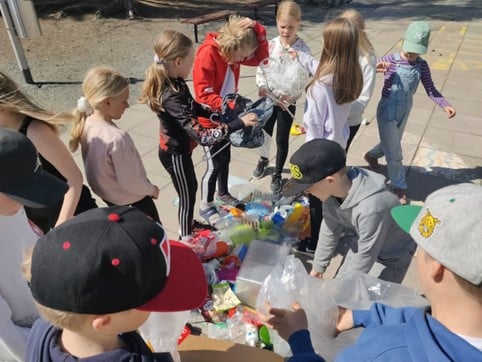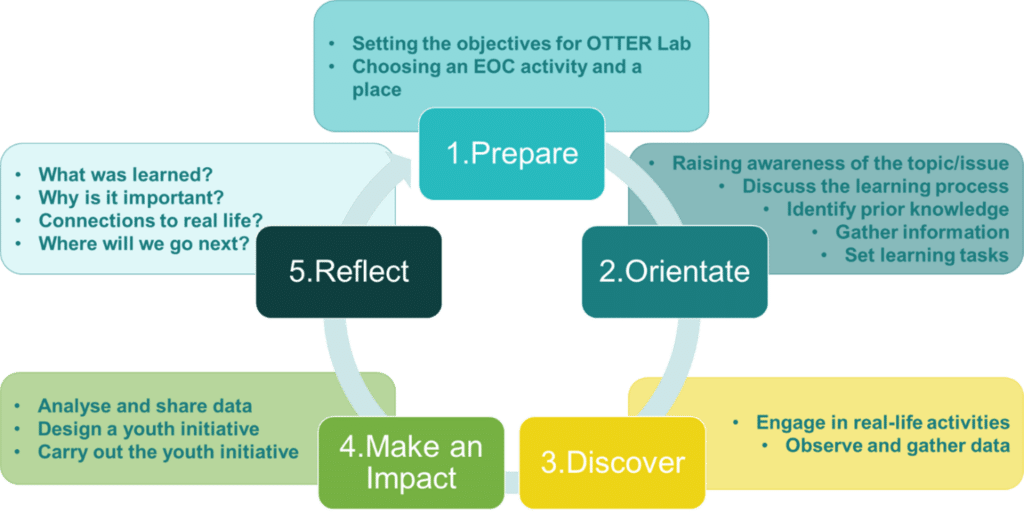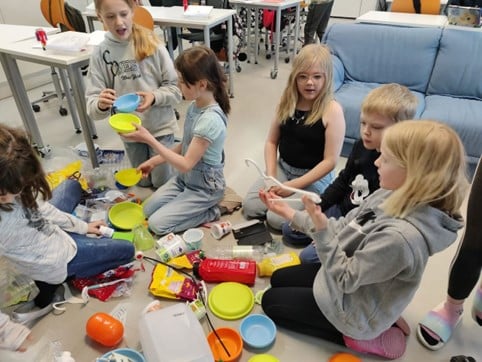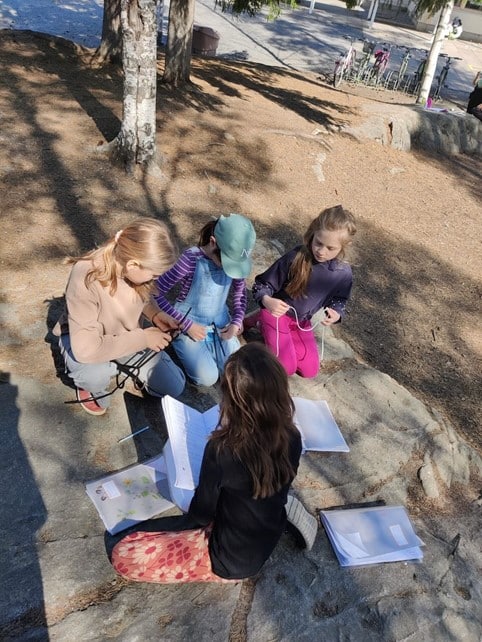
How to combine reducing plastic waste and education outside the classroom? How to promote education for sustainable development and 21st century skills in a pedagogically smart way?
EU funded OTTER project has tried to answer these questions. OTTER project aims to spark young people’s interest in science and environmental sustainability with the help of Education Outside the Classroom (EOC) tools and methodologies. In OTTER project, seven project partners from seven EU countries have joined their forces to design new EOC experiences and exchange best practices and insights. Learning Scoop from Finland is one of the OTTER pilot partners and responsible for designing and piloting OTTER Labs along with other partners from Ireland, Spain, and Hungary.
One of the key objectives of OTTER project has been to develop the OTTER Lab: a pedagogical model to help combine education for sustainable development (especially reducing plastic waste), education outside classroom and STEAM subjects. OTTER Lab adopts a student-centered pedagogical model, that is based on socio-constructivist approach: students’ own activity, their prior knowledge, peer-collaboration and learning together. OTTER Lab is directly linked to curriculum, and it can be incorporated into STEAM or multidisciplinary science lessons or projects. It is developed especially for educating students about plastic waste and solutions to reduce it but can be applied to other environmental sustainability topics as well.
How to do it?
OTTER Lab was created to make education outside classroom easy to implement without compromising deep learning. OTTER Lab has five steps: 1. PREPARE, 2. ORIENTATE, 3. DISCOVER, 4. MAKE AN IMPACT and 5. REFLECT.

PREPARE step contains setting the objectives for OTTER Lab. The idea is to link OTTER Lab objectives to existing curriculum. Moreover, the goals can include objectives linked to sustainable practices, 21st century skills, as well as objectives linked promoting inclusion and diversity. In PREPERE step a teacher also chooses an EOC activity and a place for OTTER Lab.
In ORIENTATE step, the goal is to help students feel the importance of the chosen environmental topic or issue. This can be done e.g. by telling a story, watching a video or a documentary, inviting an expert to the classroom to share their experiences, interviewing people who are involved, reading an article etc. By orienting to the topic students will personally understand why this issue is relevant. In ORIENTATE step it is also necessary to inform the students about the upcoming EOC activity and the whole learning process: the theme and learning objectives, EOC activity, the location etc.
Furthermore, the ORIENTATE step includes mapping students’ prior knowledge about the topic and gathering relevant new information for the EOC activity. In addition, in the ORIENTATE step learning tasks for the EOC activity are set. Students should be aware what they are expected to do, find out, observe etc. during the EOC activity and what kind of information they will need in the up-coming phases of the OTTER lab.


Students from Atala school Tampere, Finland sorting out plastic waste they have found during OTTER Lab.
In DISCOVER step the core idea is to get students engaged in real-life activities in the actual EOC site. The EOC activity should provide students opportunities to get authentic, hands-on experiences as well as observe and gather data. Collecting data can be done by observation, taking notes, answering pre-determined questions, taking photos or videos, interviewing experts, using mobile app etc.

Students from Atala School Tampere, Finland gathering information in OTTER Lab DISCOVER step.
In MAKE AN IMPACT step, students analyze and share collected data, summarize what was learned and share their insights with each other. Moreover, they draw conclusions, what they could do to have an impact in these environmental issues. Students ideate and develop proposals together. They decide what kind of youth initiative they want to design, and they make a concrete plan how they will implement this initiative.
Examples of Youth Initiatives
Furthermore, in MAKE AN IMPACT step students carry out the youth initiative they have designed and
evaluate how it works. Here are some examples of possible youth initiatives:
- An art exhibition for the parents, teachers and other students
- Posters about importance of recycling
- A toy clinics; the pupils would fix things
- A newsletter about recycling of plastic waste
- A handbook or an action guide for households about reducing plastic
waste - A guide on how to organize recycling in own class or school
- An initiative to the municipal / county council
- A suggestion for changes to school policy to help reduce plastic waste
- A plan for energy saving
- The youth initiative can also be something else: a video to TikTok,
a blog post or other social media content, etc.
Deep learning requires reflection: what have we learned, how we have learned it, and where will we go next. Reflection is about students becoming aware of their own thinking processes and being able to make those transparent to others. It enables assessment of the “why” and “how” of the learning, and what needs to be done as a result. In REFLECT step of OTTER Lab, students reflect their own learning as individuals as well as a group.
During the spring 2023 this OTTER Lab model has been piloted and tested in four different countries: Finland, Hungary, Ireland, and Spain. Teachers have designed their own OTTER Labs based on the proposed guidelines and implemented them with their own students. The whole process is carefully documented and researched by two project partners: University of Limerick from Ireland and University of Groningen from the Netherlands. We are happy to share the results of this research later this year!
If you are interested to find out more about OTTER project, please check out our webpage. If you would like to learn more about best EOC practices, join the OTTER Hub and share your insights with us!

